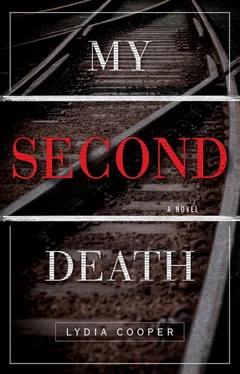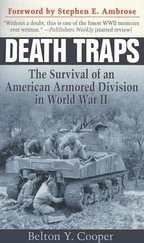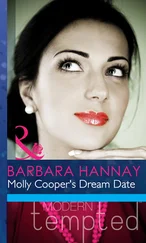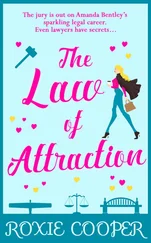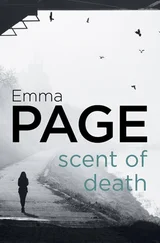I carry the plastic containers to the counter and fix myself pasta and sauce, heat the plate of food in the microwave.
“So is everything going well? Your classes?”
I glance over at her. “Yeah. They’re okay. My classes, I don’t know. The students are so gullible. I could tell them anything and they’d believe me. They’re a bunch of rats in a box waiting for someone to start experimenting.”
She smiles a little, gets out a saucepan and slices butter into it. She crushes a clove of garlic. Papery garlic shells litter the countertop.
“Mom?”
She turns to look at me. Her face, creased with dark mascara, looks like a Greek tragedy mask.
“Do you remember me always being like this?”
She doesn’t answer right away. She blinks and gets a skein of green onions out of the vegetable drawer in the refrigerator. I pull back against the sink when she passes me.
She says, “We didn’t notice anything right away. But we wouldn’t. I mean, all babies fuss and poop their pants. You start noticing their — well, I suppose you would call it their personalities — later.”
“But then you noticed.”
She slices onions into the sizzling butter. “I don’t know.”
The microwave dings. I pull out the plate of pasta. Iridescent patches of oil glisten on the steaming sauce. I get a fork out of the silverware drawer and blow on the pasta.
“What do you mean you don’t know?”
“Well, I suppose I noticed things that — made more sense later.”
“After I killed that guy.”
She doesn’t say anything. I can’t see her face from the sink. I assume that she’s thinking about her answer, but then she puts out an arm, props it against the countertop, and her head drops forward and she turns it to the side, and I see that she’s biting her lower lip and her eyes are closed tight. Tears stiffen her eyelashes.
I watch her cry for a while. Her chest hikes up and down, water pooling in the hollows under her eyes. She looks old when she cries.
Then her breathing evens out, and she wads paper towels against her face and blows her nose.
“So what are you crying about now? The same thing you were crying about earlier?”
She takes a few breaths. Like air is something newly discovered and she’s tasting it, sampling it. Her face glistens. “Yes,” she says. “The same thing.”
“And it’s not finances.”
“No.”
“Is Dad having an affair?”
She gasps and then laughs. The wrinkles on her face ease. “No, honey.” She smiles and dabs at her eyes. “You don’t need to worry about that. Your father and I have been through rough patches before. We’ll work this one out.”
I eat some pasta. Chew. Swallow. “So it’s me.”
She moves the sauce off the burner. “It’s not anything. Sometimes I just cry.”
“That’s pointless,” I say. “Most people cry for a reason, right?”
She pinches her lips together. And then she takes a breath and lets it out, slowly. She looks up at me. Her face is calm but her eyes sparkle with collected tears. “What’s it like in your head? What are you thinking right now?”
I raise my eyebrows. I don’t know what she wants me to say. “Nothing, I guess. Nothing important. You’ve got snot on your lip.”
“Why do you think I’m crying?”
I squint at the pasta. “I just said I don’t know. If I had to guess, I’d say because being around me makes you sad.” I look at her. “But that doesn’t make any sense. Because you’ve lived with me my whole life.”
I watch as tears well up in her eyes again and spill over. Her eyes burn, incandescent. She doesn’t wipe the tears this time. She says, “You never cried. When you were only three years old, I found you in the sandbox playing with toys and you had banged your head. Your forehead was bleeding, dripping onto your sandcastle, but you didn’t seem to notice. And then one time I saw a little neighbor girl come over and take a doll out of your hand. You just watched her like she was a — a curious specimen.”
I just look at her. I don’t know what she wants me to say.
“Does it hurt you? When people touch you?”
I shrug. “It makes me feel — claustrophobic. Freaks me out, kind of. It probably feels like vertigo.”
“Vertigo.”
“I read about vertigo once and it sounded about right. I’m just guessing.”
She nods.
She doesn’t say anything for a bit. I notice that she’s stopped crying. Finally, she dabs off her face again and tosses the wadded-up paper towel in the trashcan. Then she goes to the fridge and gets out a plastic-wrapped package of raw chicken breast. She says, “You were playing that Chopin so beautifully, such good tonal control. And I was just thinking about how you can play musical emotions you’ve never felt. And how I can’t hug my own daughter.” She starts slicing chicken breast on a cutting board. I watch the knife blade flash through the firm pink flesh. She says, “I went through a stage when you were about fourteen, when we were realizing that it wasn’t going away — whatever it was — anyway, I went through a stage where — where I sometimes wished you had died.”
She brushes hair off her forehead with the back of her hand. She gazes up at nothing and then shakes her head and starts cutting chicken again. “I didn’t wish you had died. I just felt like my child had died, but wasn’t dead. I can’t explain it. I would wake up in the middle of night and realize I could never — never take my daughter shopping, or to the movies, or to — to prom . I could never — kiss my own daughter. Hug her. Talk to her.” She stops talking.
“We’re talking now,” I say. “We’re conversing.”
She gives a sound like a cat choking on a hairball. She says, “I could be talking to the — to the refrigerator . I’m explaining why human beings cry. That’s not — we’re not talking , Michaela.”
I don’t know what she means. It sounds like we’re talking, at least it sounds like it to me , but I think pointing that out will not exactly help.
“I just told you I used to wish you were dead,” she says. Her voice is shrill. She turns to face me. “Do you feel anything? Any thing?”
Her face is stricken with sharp lines. I imagine that if I touched my fingertips to her face the skin would feel moist and cool like a hard-boiled egg. I could smooth my thumbs over the dark smears marring her egg-white cheeks like Aidan brushing paint over a mess of penciled lines. And suddenly I want her to wake up in the morning, startled, to realize that I was never born, that my whole life was just a bad dream that she has finally woken from and that the sun is warm on her pillow and she is happy.
I look down at my hands, cupped around the pasta container. The sauce has left an orange stain on the plastic. “I understand why you feel that way, I do. I’d be pissed, too. I’m not what any mother would wish for in the daughter department, so I—”
“Jesus!”
I stop, startled. My mother never swears. She looks brittle. The knife is wavering in the air. I watch the tip trembling.
“I’m your goddamn mother! I love you! Say something!”
Instead of making her feel better I have brought a wildness to her pink-stained eyes. I don’t know what to say.
I just stare at her. At the knife. I wonder if she’s going to stab me.
After a long time I say, “It’s okay. You don’t have to.”
“I don’t have to?” The knife wavers. “I don’t have to love you? Do you have any idea what it feels like to hear you say that? Oh God. That’s not what I meant. I love you. I do love you.”
All of my life she’s said this to me. I used to think it was odd but then Dave told me that she didn’t know. She still doesn’t. I don’t understand how she can not know. She thinks that it’s possible to love me, like I’m just some ordinary person who can be saved, or changed, brought back from whatever dark place I got lost in. But I can’t be saved. No matter how much I want it.
Читать дальше
